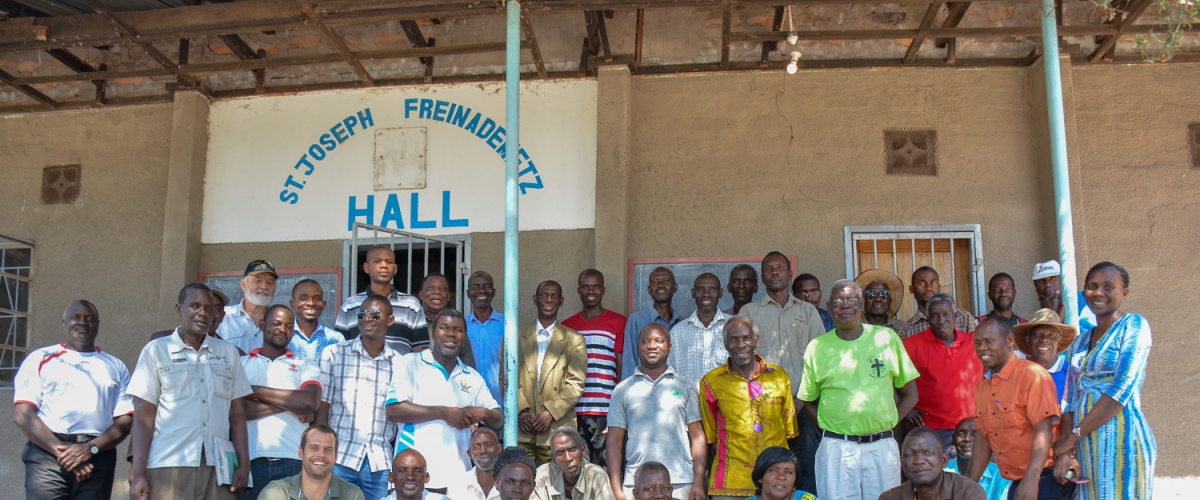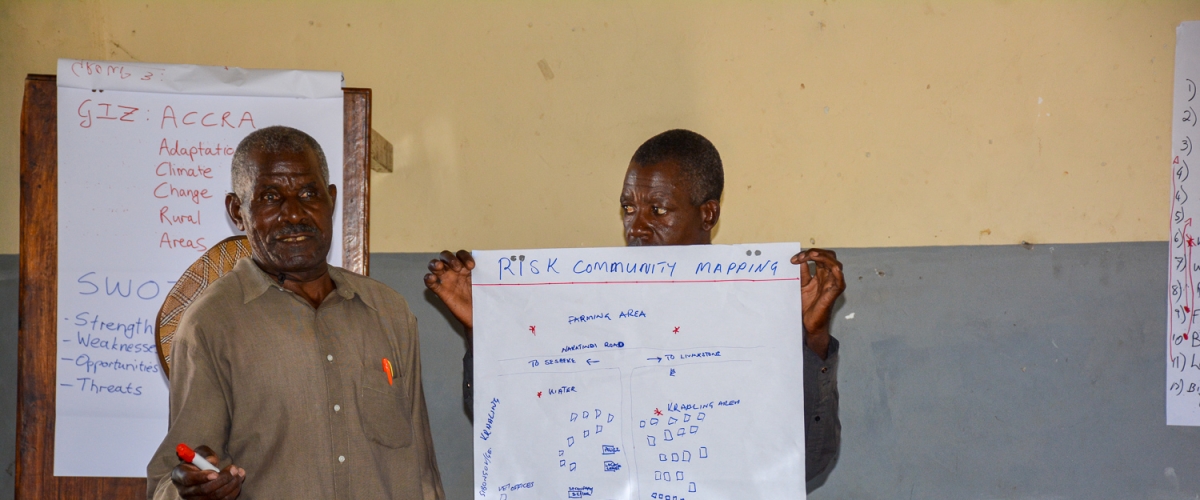

“I am excited to hear that the Herding for Health(H4H) project will empower my kingdom to embrace cattle herding an abandoned good practice, to mitigate the effects of climate change,” said Chief Inambo Yeta of the Lozi people of Sesheke district. He said this when the Herding for Health team paid him a courtesy call at his palace in Mwandi district, Western Province in Zambia.
The Centre for Coordination of Agricultural Research and development in Southern Africa (CCARDESA)with support from the German development cooperation (GIZ) is working with the Herding for Health(H4H) to help communities revive herding of livestock to mitigate the effects of climate change. The H4H, implemented in partnership with the Peace Parks Foundation and Conservation International works with communities to ensure that wildlife and livestock co-exist.
The concept behind H4H is based on the 4 Hs which looks out for healthy rangelands or grazing land, healthy people and livelihoods, healthy animals and healthy policies. To ensure efficacy and professionalism, the H4H is working with the Herding Academy of the South African college of tourism and the Southern African Wildlife College to develop a curriculum for training professional herders. The project encourages and enables communities to employ trained herders who know how to take care of rangelands and use rotational methods of grazing. In addition to this, communities combine their livestock in one big herd which herded together. The movement of a large herd increases the fertility rate of the soil as the herd drop dung which leads to improved growth of grazing land. This may not happen when individual family herd their livestock because the herd is not big. To avoid confusion, each family is advised and helped to tag their cattle for easy identification.
The Simalaha community were so excited to have the H4H project and look forward to its full implementation. This was evidenced by the presence of the members of the Simalaha Conservancy Trust, key among them was the Chairman Mr David Siandavu, the treasurer Induna Dominic Anasambala and the secretary of the trust who is also the Mayor of Mwandi. Other participants included the Indunas from the Kuta, Veterinary doctors from surrounding districts, officials from the Ministry of Agriculture, livestock and crop farmers and policymakers. The community were receptive to the Herding for Health and climate proofing presentation. They vowed to support the feasibility test phase of the project.
The workshop had a climate proofing exercise which allowed the communities within the Simalaha conservancy to identify areas in their community which were prone to climate change as well as identify their perceived changes in the weather patterns. Seventy years old, Mr Robert Simangolwa, a Livestock farmer of Kazungula mentioned the differences he has observed on his livestock. “In the 1980s my livestock was disease-free, and they had lots of grazing land, but now I struggle with diseases and little grazing land. I don’t know what is happening; I cannot explain this”.
The concept of herding has already been implemented in South Africa for the past 20 years and has since yielded positive results in restoring rangelands which were depleted.
The project has conducted inception workshops in Eresta and Habu in Botswana and Simalaha in Zambia with the team being optimistic that similar positive results as those of South Africa will be achieved in the new pilot areas of Zambia, Zimbabwe, Lesotho, Mozambique and Botswana.





